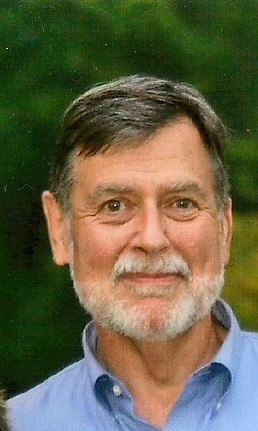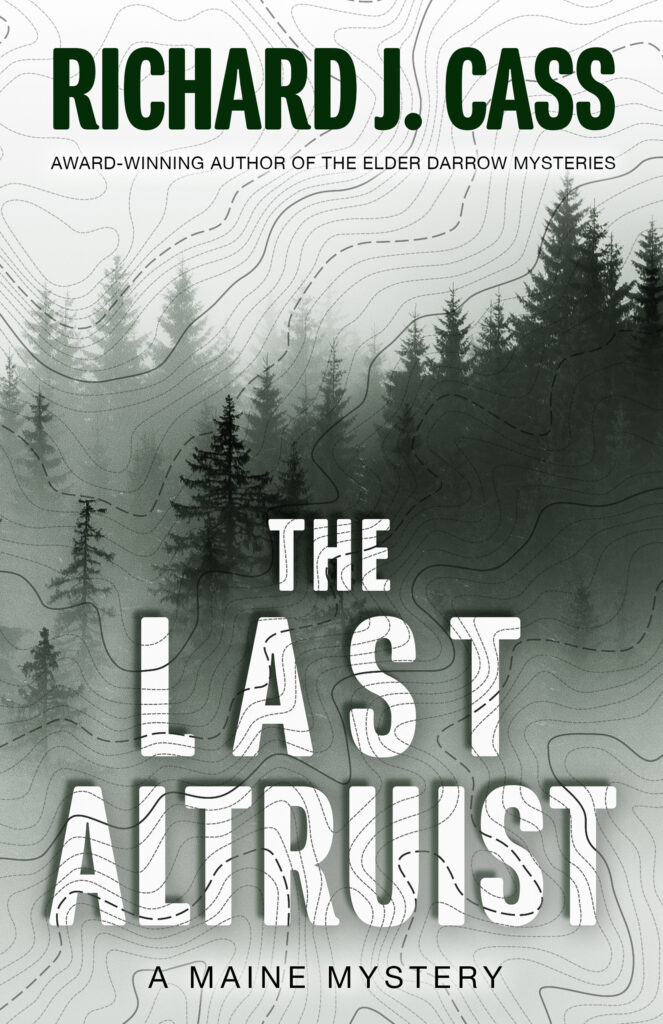

Are there any books or authors that inspired you to become a writer?
I was an avid reader from a very young age, the kind of kid who would read under the covers with a flashlight. I cut my teeth on the Hardy Boys, then graduated to Ray Bradbury and Alfred Hitchcock paperbacks. When I ran out of them, I discovered the Gold Medal paperbacks: John D. MacDonald’s Travis McGee series in particular. Elmore Leonard inspired me with his dialogue. In science fiction, I came to love Ursula LeGuin. All of these were writers I tried to emulate in one way or another as I developed.
At what point do you think someone should call themselves a writer?
I think as you start to write with an intention of explaining yourself or exploring your ideas, you should begin to at least think of yourself as a writer. In my mind, the only requirement for being a writer is that you write—something. If you write consistently, so much the better. If you write for publication, good luck to you. But the simple act of putting the words down is what makes you a writer. If you write, you’re a writer. If you don’t write, you’re not.
Too many people get caught up in what I think of as authorship vs. writing. They worry about getting an agent, signing a contract, getting reviews or blurbs. All of that is integral to authorship—to getting your work out to the public, getting readers, and so forth. BUT IT IS NOT WRITING. Writers put words down, on paper, on screen, on the walls if they have to. That is what makes a writer.
How long have you been writing or when did you start?
I write my first short story in the sixth grade, an elaborate and twisty tale of the theft of a famous stamp. I wrote off and on through high school, especially for one Robert Macnamara, an English teacher who, instead of dunning us with the Mill on the Floss, insisted we write every class; he also gave extra credit for book reviews, students’ choice. I studied and wrote poetry in college, but found I was more interested in narrative, in telling stories.
And I published my first book at the age of 65.
If you could be mentored by a famous author, who would it be?
I have many mentors already, from a lifetime of reading and thinking about what the authors I respect have done and how they do it. If I could have one in-person mentorship, I would ask Ursula LeGuin to mentor me—I took a short workshop with her fifteen years ago and was dazzled by the depth of her knowledge of the craft and her no-nonsense way of approaching the work.
What advice would you give to a writer working on their first book?
Get the story down, as roughly and quickly as you can. You started writing a book because you wanted to tell a story. Tell it. And finish it. Once you have that first draft done, you have material to work with, to revise, to work the writing more closely to your vision of the story as you originally had it in your head. Because we never get very close the first time around.
The corollary to this is don’t dawdle, or edit as you go. Write fast and hot, knowing you’ll have plenty of time to flesh out characters and eliminate inconsistencies in revision. But without the raw material of the first draft you’ve got nothing.
What are your favorite series or series authors?
Because I write a series, I’m always looking at other authors’ series for ideas and tips. It can be difficult to keep a set of characters fresh and developing over multiple books. One author who does this very well is John Sanford, with his Lucas Davenport and Virgil Flowers series. He does an exceptional job of creating interesting situations for the protagonists, as well as making sure they develop over the arc of multiple novels in the series. The two characters are quite different, but they both have terrifically three-dimensional lives in their respective books.
What author in your genre do you most admire, and why?
There are any number of excellent authors working in the crime fiction genre today, all of whom have something unique to contribute. I don’t have a single crime writer I admire most, but of the ones writing right now, I would identify Dennis Lehane, T. Jefferson Parker, and James Lee Burke as writers who are most likely to have written books that I admire.
What difference do you see between a writer and an author?
I’d characterize a writer as anyone who puts words down in a medium in an attempt to communicate something: a story, an idea. An author is someone who, in addition to being a writer, is heavily engaged in the non-writing parts of making books: publicity, marketing, events, etc.
What is the most difficult part of your writing process?
The part of writing novels that takes the most energy for me is being sure that I have revised a story to the maximum, so that the book says what I want it to say and tells exactly the story I want it to tell. The temptation is always to give up too soon, to think you’ve done everything you can. On the other hand, it’s possible to revise endlessly—there’s an art to knowing when you’ve done just enough.
What is your work schedule like when you’re writing?
When I’m writing, I get up very early in the morning and spend the first part of the day focused on new work, either on extending a first draft or deep-revising. That’s when I find my working energy at its height. I will then work out, have something to eat, then come back to what I’ve worked on in the morning with a more conscious and rational approach. I usually spend three to four hours a day at the desk, though a book is always spinning away in the background, too.
When did you write your first book and how old were you?
I wrote my first book, In Solo Time (the first in the Elder Darrow series) over ten years while I was working. Because I was working at a time- and energy-consuming job, I didn’t get serious about publishing until I was in my fifties. My first book was published when I was sixty five.
Author of Mickey’s Mayhem, #6 in the prizewinning
Elder Darrow jazz mystery series.
Maine Literary Awards — 2018 Crime Fiction Winner
Nancy Pearl Book Award — 2021
Twitter: @DickCass